- Details
- Category: Senator Cristina Pacione-Zayas News
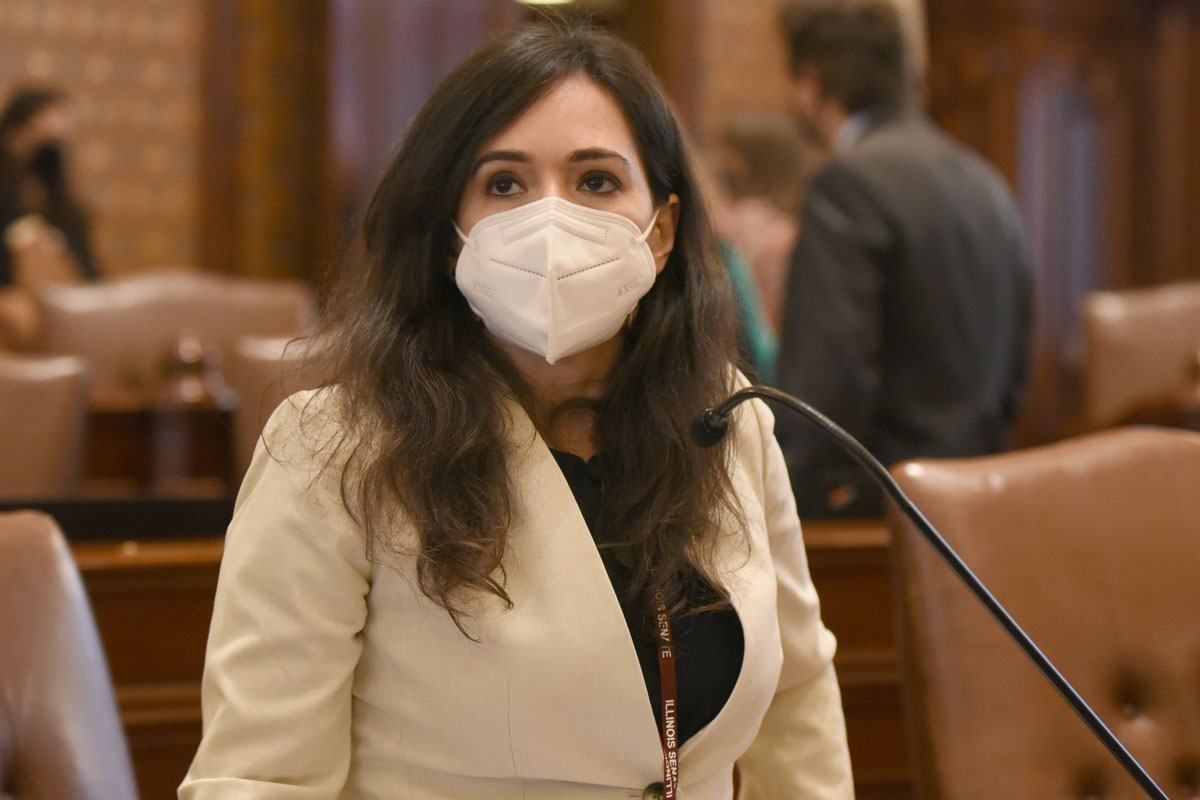 CHICAGO – State Senator Cristina Pacione-Zayas issued a statement following last week’s federal court decision in Texas blocking the Deferred Action for Childhood Arrivals program from taking any new applications:
CHICAGO – State Senator Cristina Pacione-Zayas issued a statement following last week’s federal court decision in Texas blocking the Deferred Action for Childhood Arrivals program from taking any new applications:
“Judge Andrew Hanen’s ruling last Friday is yet another egregious attempt to rip the opportunity away for a pathway to citizenship, safety, and protection from hundreds of thousands of people who came to this country as a result of broken U.S. foreign policy.
“DACA protects undocumented child immigrants and allows them to work in the United States, pursue educational goals, and ultimately give them a chance to make their own way in this country.
“This decision is just another painful reminder of why the federal government needs to act with urgency and expediency about designing and implementing a permanent solution that is a comprehensive pathway to citizenship for all undocumented immigrants beyond DACA recipients.
“I stand with all the immigrants in the 20th District and beyond. I see you. I hear you. I promise to continue to work to represent you in this state, and I urge Congress and the president to act as soon as possible to protect the millions of people who are entitled to safety, resources, and ability to openly contribute to reimagining this country as one that works towards our collective liberation.”
- Details
- Category: Senator Patricia Van Pelt News
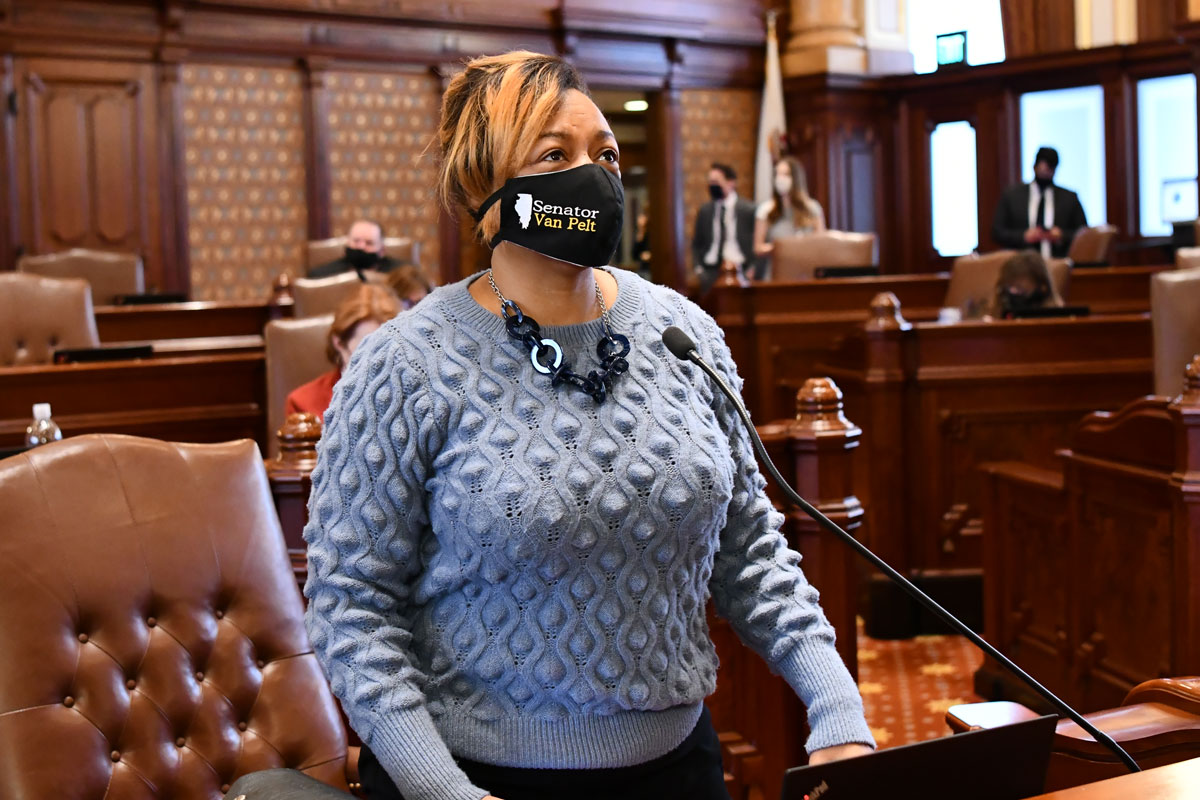 CHICAGO – State Senator Patricia Van Pelt (D-Chicago) is encouraging residents of Chicago’s West Side check their eligibility for the federal Child Tax Credit, even if they did not file taxes in the last two years.
CHICAGO – State Senator Patricia Van Pelt (D-Chicago) is encouraging residents of Chicago’s West Side check their eligibility for the federal Child Tax Credit, even if they did not file taxes in the last two years.
“I encourage families that are eligible to take advantage of this opportunity,” Van Pelt said. “By filling out the non-filer application on the IRS website, you can still get relief, even if you did not file taxes in 2019 or 2020.”
Read more: Van Pelt encourages residents to check eligibility for federal Child Tax Credit
- Details
- Category: Senator Steve Stadelman News
 ROCKFORD – State Sen. Steve Stadelman (D-Rockford) congratulated the Region 1 Planning Council on winning an important grant to help expand broadband access throughout the Northern Stateline region, which includes the Rockford area.
ROCKFORD – State Sen. Steve Stadelman (D-Rockford) congratulated the Region 1 Planning Council on winning an important grant to help expand broadband access throughout the Northern Stateline region, which includes the Rockford area.
The Illinois Department of Commerce and Economic Opportunity and Gov. JB Pritzker recently announced the first list of grant recipients for the Broadband Regional Engagement for Adoption + Digital Equity (READY).
“Internet access is becoming as important as telephones and electricity for many citizens, and Illinois is looking to get them connected with better speeds,” Stadelman said. “High speed internet will help many people in the Rockford area work and search for work, connect families, and help students who need access to educational information.”
The inaugural READY program is a first of its kind, with $200,000 already awarded to four regional entities to accelerate progress in eliminating the digital divide. The program is meant to fuel local efforts to increase digital equity for homeowners and citizens who lack access to high-speed internet.
“Region 1 Planning Council is grateful for the opportunity to bring partners together as a part of the Broadband READY program,” said Region 1 Planning Council Executive Director Michael Dunn, Jr. “Focusing on the elimination of the digital divide in Winnebago & Boone Counties, DCEO’s funding helps establish a regional action plan as well as funding Rockford Public Library’s launch of a Chromebook and hot-spot lending program for its patrons. The READY program will help our region take practical steps toward closing the digital divide and enhancing broadband access, adoption and use.”
The READY grantees may use funds to expand immediate broadband connectivity, conduct outreach and engagement to identify current digital inequities, and establish next steps toward creating a digital inclusion ecosystem. More information on the broadband access grants is available on the DCEO website.
- Details
- Category: Senator Christopher Belt News
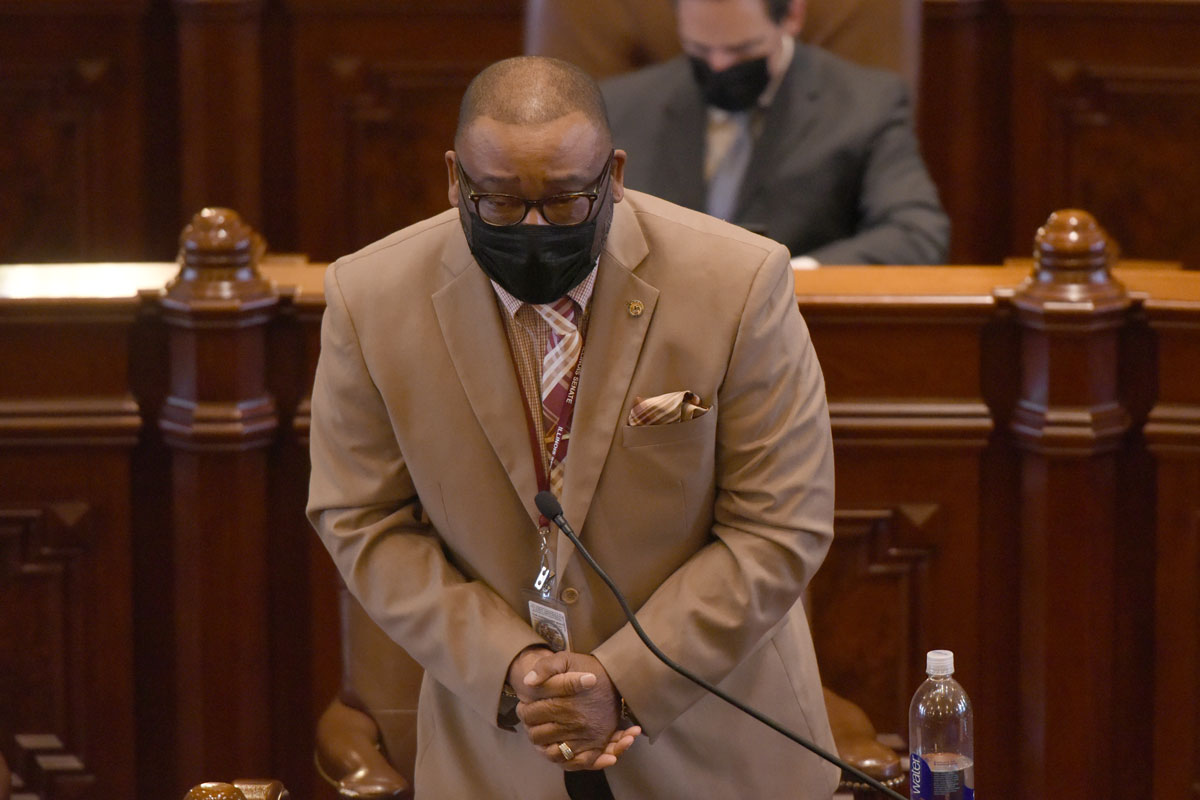 EAST ST. LOUIS – To expand digital access in the Metro East, State Senator Christopher Belt (D-Swansea) is urging local organizations to apply for the second round of state broadband grant funding.
EAST ST. LOUIS – To expand digital access in the Metro East, State Senator Christopher Belt (D-Swansea) is urging local organizations to apply for the second round of state broadband grant funding.
“People rely on the internet. As the pandemic forced many people to work from home and participate in school remotely, access to the internet became a necessity,” Belt said. “I want to spread the word that applications are open for organizations to apply for broadband funding as we work to eliminate the digital divide.”
The Office of Broadband Regional Engagement for Adoption + Digital Equity (READY) program is designed to increase access, adoption and use of high-speed internet access through the lens of digital equity and inclusion. To further these efforts across all ten economic development regions of the state, the Department of Commerce and Economic Opportunity’s Office of Broadband is launching the next READY notice of funding opportunity, with another $250,000 available for grants.
The Broadband READY program is part of a comprehensive Digital Equity Package to boost broadband capacity while addressing existing broadband equity gaps. The READY program and other investments to enhance community planning and equitable implementation will complement the Connect Illinois program, a $400 million plan to deliver universal access to high-speed internet statewide.
Funding can be used to expand immediate broadband connectivity, conduct outreach and engagement to identify current digital inequities and establish next steps forward. Its aim is to create a digital inclusion ecosystem through regional collaboration among institutions of higher education, planning councils, community and economic development organizations, schools, libraries, health care and local leaders and other related stakeholders.
“In today’s world, the internet is our gateway to everything,” Belt said. “Bridging the gap to ensure people have reliable internet is essential.”
The application deadline for the second round of READY grants is Oct. 4, 2021. Visit the Illinois Office of Broadband website for information on eligibility criteria or application assistance.
- Details
- Category: Majority Report
Illinois revisits cannabis laws to provide more licenses to minority applicants
SPRINGFIELD - Illiinois has created new marijuana dispensary licenses for social equity applicants because of a new law sponsored by Senate Majority Leader Kimberly A. Lightford (D-Maywood) that was signed last week.
“The signing of House Bill 1443 moves us closer to making the promise of equity in cannabis a reality in a state where the entire existing industry is White. I was proud to partner with State Representative LaShawn Ford in passing HB1443 which is the result of dozens of meetings with stakeholders and applicants who demanded that their voices be heard,” Lightford said. “This industry has the potential to change lives but only if we keep the principles of equity at the center of every decision we make. The signing of this legislation brings us one step closer to making these promises a reality.”
Series of new Peters laws focus on safety, justice for communities
CHICAGO – During a ceremony at a Northwestern University campus in Chicago, four public safety and criminal justice reform measures sponsored by State Senator Robert Peters (D-Chicago) were signed by Gov. JB Pritzker and became law.
The ceremony was a culmination of several years of hard work from Peters and advocates to reimagine what safety and justice look like in Illinois.
Senate Bill 2122 makes statements provided by a minor inadmissible in court if they were made after a law enforcement official intentionally lied during the interrogation. Deception is defined as “knowingly providing false information about evidence or leniency.”
Ellman encourages everyone to get outside during Park and Recreation Month
SPRINGFIELD – State Senator Laura Ellman (D-Naperville) is bringing attention to the many benefits of public parks and other natural spaces in celebration of National Park and Recreation Month.
“Parks and other public spaces in our community give everyone a place to gather and enjoy being outdoors,” Ellman said. “After the difficulties of the pandemic, this Park and Recreation Month is a wonderful opportunity to get outside and enjoy nature.”
According to the National Recreation and Park Association, parks play an important role in maintaining quality of life in a community. Parks provide gathering places for members of a community to interact with each other, host public events and offer recreational programs.

In case you missed it
MEMBERS IN THE NEWS
Senator John Connor, Lockport: New law creates increased business transparency in Illinois | The Times Weekly
Senator Patrick Joyce, Essex: Now Your Lemonade Stand Can't Be Shut Down Due to a New Illinois Law | NBC 5 Chicago
Senator Meg Loughran Cappel, Plainfield: Will County legislators’ bill to expand school zones signed into law | The Herald News
Senator Ram Villivalam, Chicago: Illinois becomes first state to require Asian American history to be taught in public schools | NPR
We're hiring
The Illinois Senate Democratic Caucus is hiring a graphic designer to help design infographics, newsletters, brochures and more. Interested in working in the fast-paced, deadline-driven environment? Learn more and apply today here.
Copyright 2021 - Illinois Senate Democratic Caucus - All Rights Reserved
- Details
- Category: Senator Laura Ellman News
 NAPERVILLE – State Senator Laura Ellman (D-Naperville) is bringing attention to the many benefits of public parks and other natural spaces in celebration of National Park and Recreation Month.
NAPERVILLE – State Senator Laura Ellman (D-Naperville) is bringing attention to the many benefits of public parks and other natural spaces in celebration of National Park and Recreation Month.
“Parks and other public spaces in our community give everyone a place to gather and enjoy being outdoors,” Ellman said. “After the difficulties of the pandemic, this Park and Recreation Month is a wonderful opportunity to get outside and enjoy nature.”
According to the National Recreation and Park Association, parks play an important role in maintaining quality of life in a community. Parks provide gathering places for members of a community to interact with each other, host public events and offer recreational programs.
Additionally, parks provide a public place where people can go to keep healthy and fit. A Penn State University study showed that the length of visits to parks has a connection with reductions in stress, lowered blood pressure, and perceived physical health.
Parks also provide an economic benefit to their communities. A review by Texas A&M University found that parks and open space raise nearby property values and increase revenue from tourism. Trees and other growth are also estimated to save cities money in environmental impacts and the effects of storms.
“Parks are a wonderful part of our communities,” Ellman said. “I hope that local residents will take this opportunity to appreciate the parks, trails and other outdoor spaces in our area.”
Learn more about local parks and public events by visiting the park district websites for Naperville, Warrenville, Wheaton, Winfield and Lisle.
- Details
- Category: Senator Cristina Castro News
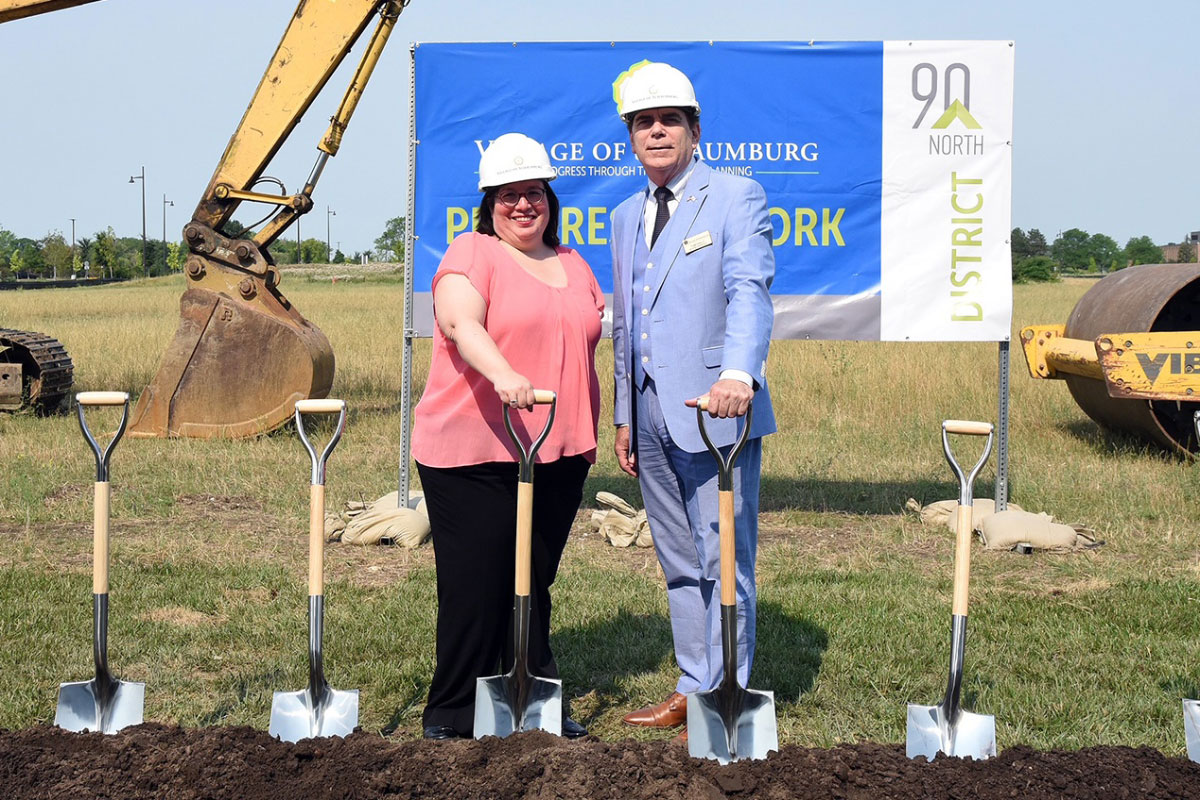 SCHAUMBURG – State Senator Cristina Castro (D- Elgin) was honored to attend the groundbreaking ceremony for the 90 North District development project in Schaumburg. The project includes $40 million in funding for community improvements this fiscal year.
SCHAUMBURG – State Senator Cristina Castro (D- Elgin) was honored to attend the groundbreaking ceremony for the 90 North District development project in Schaumburg. The project includes $40 million in funding for community improvements this fiscal year.
“From job creation to beautification, I am excited to see all the improvements this new development will bring to the community,” Castro said. “I commend the Village of Schaumburg and Village President Tom Dailly in their hard work throughout this difficult year in securing the grants and funding to make this project happen.”
- Details
- Category: Senator Cristina Castro News
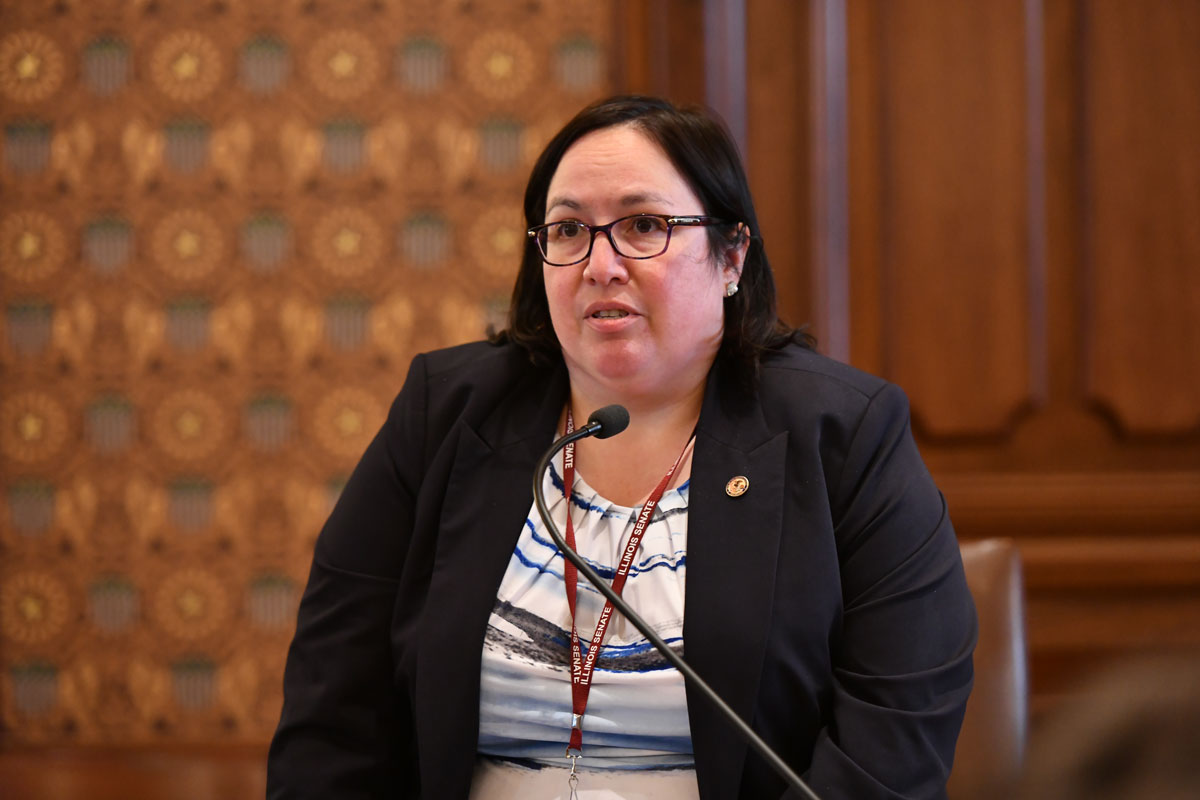 CHICAGO – State Senator Cristina Castro (D- Elgin) commends Gov. JB Pritzker for signing a measure to overhaul the adult-use cannabis dispensary lottery and increase diversity in the industry.
CHICAGO – State Senator Cristina Castro (D- Elgin) commends Gov. JB Pritzker for signing a measure to overhaul the adult-use cannabis dispensary lottery and increase diversity in the industry.
“This is a major step forward in making sure Illinois remains a leader in dismantling inequities in the cannabis industry,” said Castro, who has been a longtime advocate for legalizing cannabis in the state and who co-sponsored the new law. “Ensuring opportunities for people who have been disproportionately impacted by unjust cannabis laws was a top priority, and these additional lotteries will help set things right.”
The three lotteries will allow the state to distribute 185 dispensary licenses with a focus on social equity applicants. Applicants who previously applied for licenses will not need to submit a new application or pay a new application fee and will be automatically entered into the new lotteries.
Lotteries for all cannabis-related licenses will be a completely blind process managed by the Illinois State Lottery. All draws will be automated via a computer program and the Lottery will run multiple quality assurance checks before delivering the final results of each lottery to the Department of Financial and Professional Regulation.
“Black and Brown communities have faced the unfair repercussions of the war on drugs for too long,” Castro said. “We need to place business owners from these communities at the forefront of this booming industry.”
The measure, House Bill 1443, became effective immediately.
More Articles …
Page 437 of 762


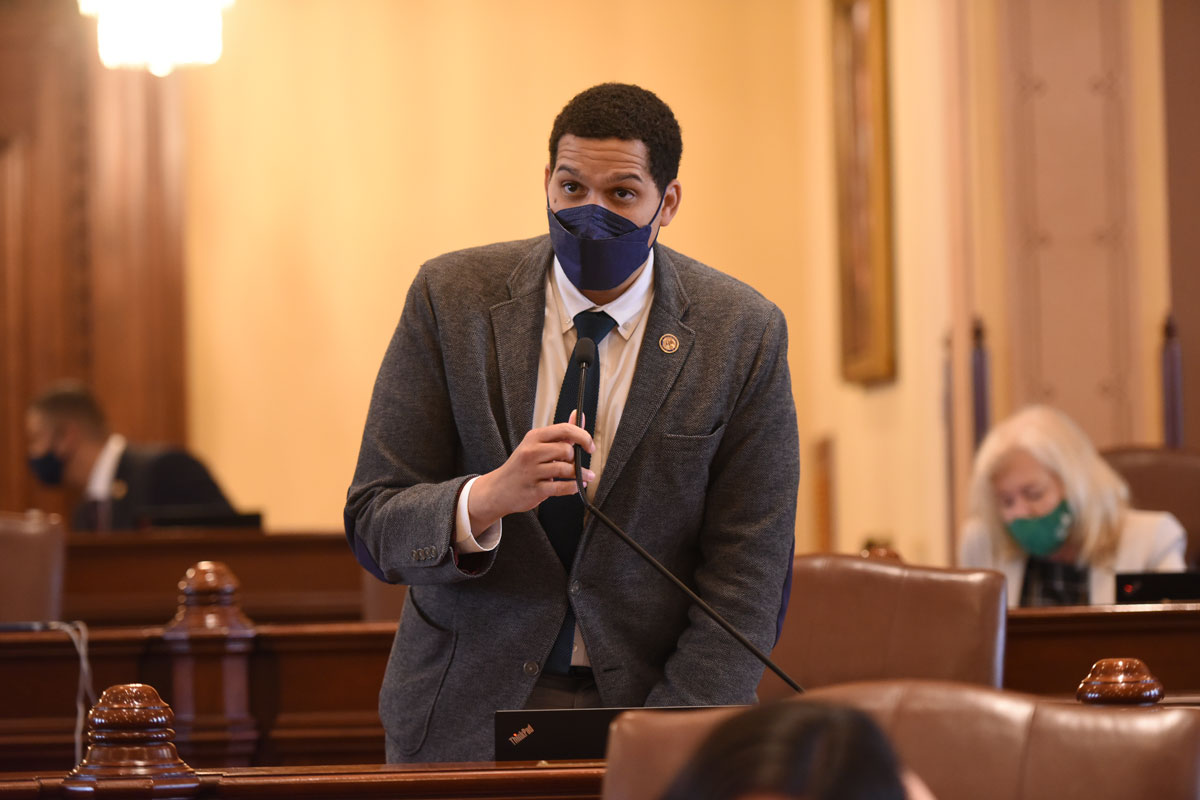













 © 2026 Illinois Senate Democratic Caucus
© 2026 Illinois Senate Democratic Caucus